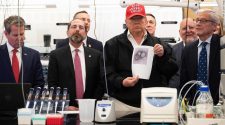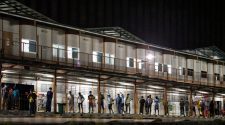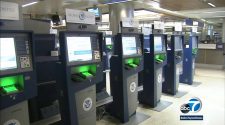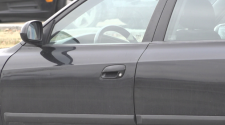LONDON — When the coronavirus first struck, Prime Minister Boris Johnson of Britain agonized long and hard before closing stores, pubs and restaurants as part of the country’s fight against the disease. But with the spread of the virus now curbed, easing the lockdown is proving harder still.
“What the country needs is clarity and reassurance, and at the moment both are in short supply,” Keir Starmer, leader of the opposition Labour Party, told Parliament.
Mr. Starmer accused Mr. Johnson of spreading “considerable confusion” in a country that is among the worst hit in Europe by the pandemic.
Mr. Johnson, making his first statement to Parliament on the virus, said Monday that the nation’s “shared effort has averted a still worse catastrophe.” He rejected criticism that his proposals were too vague, saying he trusted the public to apply “good, solid British common sense.”
But political leaders in Scotland and Wales have been quick to reject parts of the new strategy. And with contradictory official advice over when a return to work should start, even those in some quarters that generally support the government were unforgiving.
“Boris Johnson’s big lockdown speech descends into farce” was the headline in MailOnline, the digital edition of The Daily Mail.
People will be advised to wear face coverings on buses and trains and in some stores — but not obliged to.
They will be allowed to exercise more and meet with one other person in open spaces like parks — so long as they remain two meters, or roughly six feet, apart.
There is also a vague timetable for the reopening next month of some schools, and the possibility of resuming some sporting events behind closed doors.
Carolyn Fairbairn, director general of the Confederation of British Industry, a business lobby group, called the prime minister’s plans “the first glimmer of light for our faltering economy” and said “a phased and careful return to work is the only way to protect jobs and pay for future public services.”
But while the government laid down objectives for easing the lockdown, trade unions said it left many questions unanswered, including some relating to the safety of workplaces and transport networks.
Many questions also remained about a plan, likely to be introduced in a few weeks, to quarantine those flying into Britain.
“The government will require all international arrivals not on a short list of exemptions to self-isolate in their accommodation for 14 days on arrival into the U.K.” a government document said.
It said that “where international travelers are unable to demonstrate where they would self-isolate, they will be required to do so in accommodation arranged by the government.”
The government said that travelers from Ireland and France would be exempt from the quarantine rules but has not explained how it would make sure that people just transiting through those two countries to Britain would be isolated.
Part of Mr. Johnson’s latest troubles relate to poor presentation and media management, perhaps a surprising failing for someone regarded as an effective political communicator.
Last week he raised expectations of a swift relaxation of some lockdown measures, prompting excited media speculation that had to be dampened.
Then Mr. Johnson annoyed lawmakers by saying he would announce his new plan on TV on Sunday, not in Parliament, where he has appeared much less frequently than his predecessor, Theresa May.
As a concession, the prime minister delayed the publication of the official document on the new strategy until he appeared in the House of Commons on Monday. But there followed confusion over differences between what the government said on Sunday and the document made public on Monday.
Mr. Johnson’s new strategy is notably laissez-faire in its approach to balancing health and economic risks, leaving more to personal judgment. That has struck some critics as reminiscent of the early stages of the pandemic, when halfheartedness characterized Mr. Johnson’s approach at almost every step of the crisis.
In early March, he urged people to keep their distance from one another but declined to ban large public gatherings. He implored people to stay away from pubs and restaurants but declined to order them to close.
When he switched directions and ordered the lockdown, the government proved more effective in securing compliance than many expected, in part by adopting a clear slogan — “Stay Home” — and urging people to protect the National Health Service and save lives.
On Monday, Mr. Johnson said Britons had heeded the call to stay home “more thoroughly than many other populations.”
That slogan has now been scrapped in favor of the vaguer “Stay Alert.”
Mr. Johnson is under pressure from some of his own lawmakers, who want a quick reopening to limit what some experts predict could be the severest damage to the economy in three centuries.
Yet Mr. Johnson knows from personal experience how grueling the virus can be, having himself been hospitalized with Covid-19. And he wants to avoid a second spike of infections and a renewed lockdown that could destroy business confidence.
The government’s attempt to balance those considerations has frustrated not only politicians but also some public health experts. They lamented the lack of detail in the reopening road map about an integrated program of testing, contact tracing and isolation for people who are infected.
“I think it is a decent starting point and sets out the challenge well,” said Devi Sridhar, director of the global health governance program at Edinburgh University. “But it is lacking in clear communication on what each phase entails and has almost nothing on isolation.”
Even after the government sets up an extensive testing and tracing operation, Dr. Sridhar said, it will have to provide support to households whose members are quarantined. Public-health authorities will have to monitor people to see whether they develop symptoms.
Others critics pointed to the lack of clarity on whether people should wear face coverings in public places. Scientific advisers initially played down their effectiveness in curbing the spread of the virus and noted that the World Health Organization did not recommend them. But as France and other countries have begun to require their use, Britain has reconsidered.
Some of Britain’s reluctance has been the result of an acute shortage of masks and other protective gear for health workers. Officials fear that if they require the public to wear masks, it could siphon off the supply for hospitals and especially nursing homes, where the lack of such gear appears to have aggravated the death toll.
So the advice is voluntary, not compulsory, leaving the final decision to those who Mr. Johnson hopes will soon start going back to work.

















